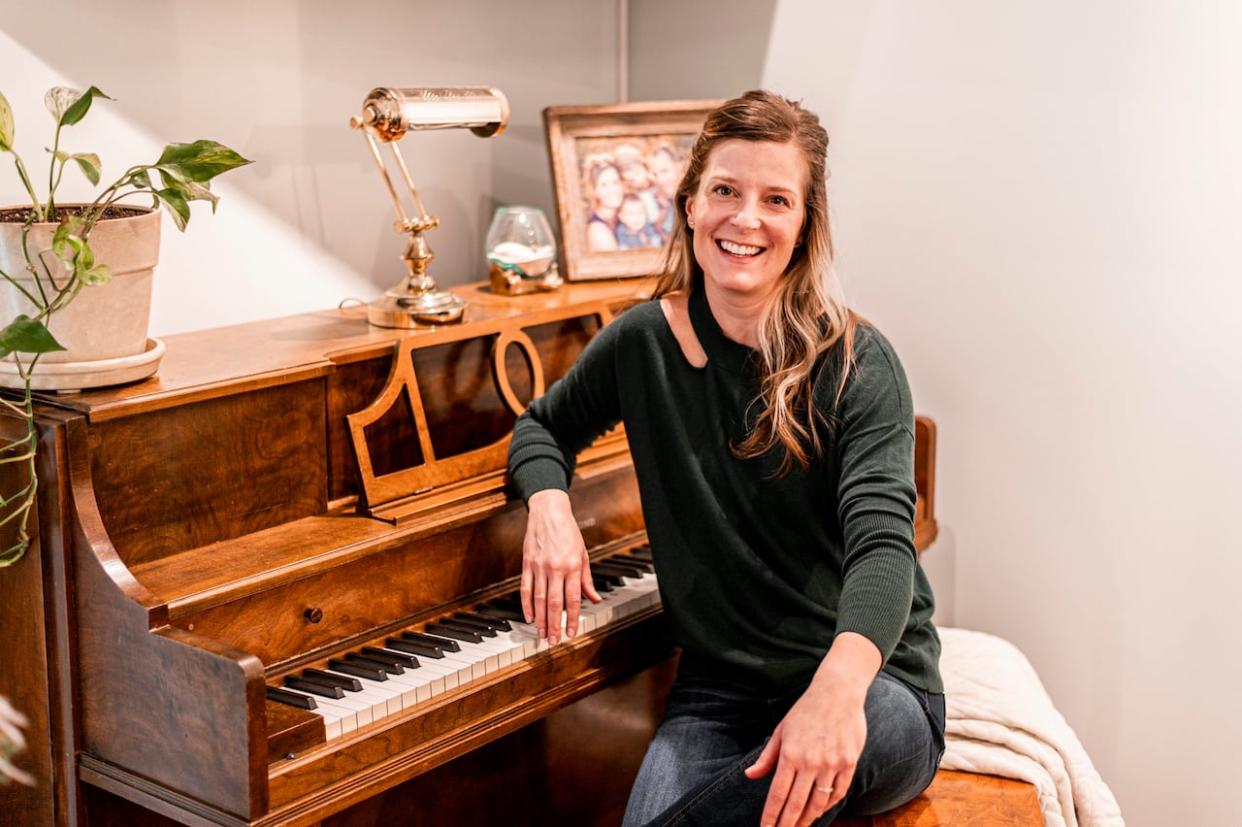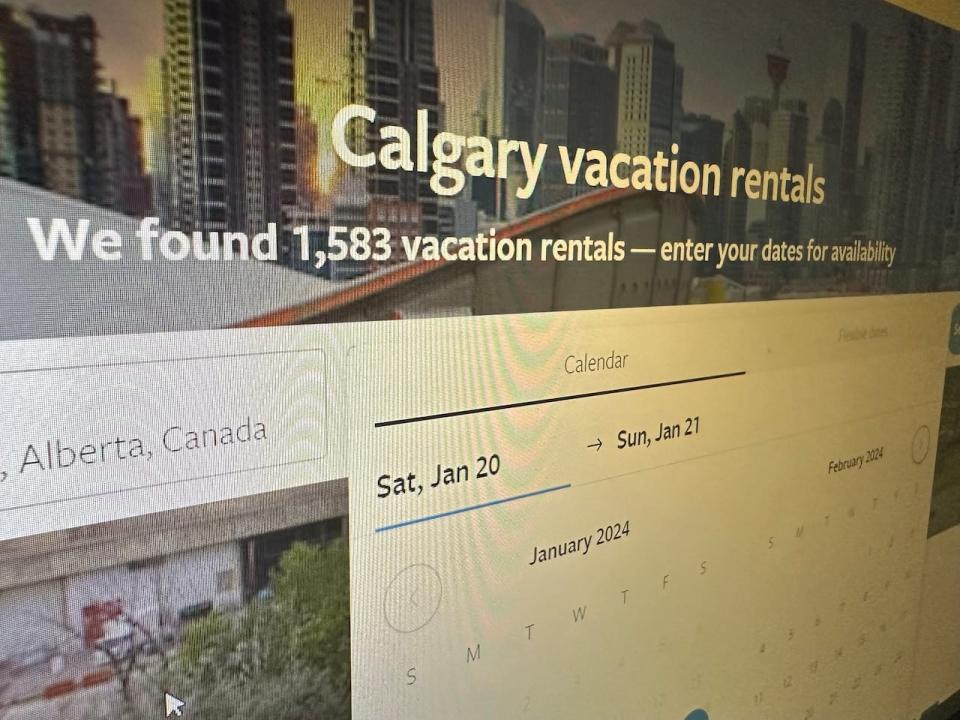Report finds very few Airbnb rental homes could be returned to Calgary housing market

Colette Baser lists her three-bedroom, northwest Calgary home on Airbnb every time her family leaves on a new adventure.
She rented out the house for the first time in 2015, when she took her kids, then four and seven, to travel around Southeast Asia for a year.
"We opted out of the keeping up with the Joneses," said Baser. "It was a passive income opportunity that could fund our travel, fund bringing freedom and joy into our life."
The health and life coach says her home will again be available through Airbnb for two months later this year when her family visits Colombia.
Baser's rental property is among the majority of short-term rental properties (STRs) in the city that aren't listed year-round, according to a recent University of Calgary report.
Temporary listings like Baser's are a help to tourists visiting the city but don't do much for the cost of housing in Calgary.
Across the country, different levels of government are looking at or passing controls on short-term rentals to boost housing inventory and bring down costs.
Few listings could be returned to housing
The City of Calgary has partnered with the University of Calgary for a multi-year study on short-term housing. An aim of the project is recommending an updated short-term rental policy that aligns with city housing priorities.
But around 74 per cent of the Calgary homes listed on Airbnb and Vrbo are non-permanent, with many owned by families renting out their home while travelling, according to Gillian Petit, University of Calgary senior research associate in the economics department.
"These could be snowbirds. These could be … academics who leave for sabbatical for four months to somewhere else," said Petit.
Because most short-term rental properties are not listed full-time, Petit estimates about 28 per cent — around 1,500 listings — could be returned to the housing market.
"If these commercial short-term rentals were banned, we would definitely see housing go back on to the market for residents, but it would be a very small amount of housing compared to the housing we actually need," she said.
The city's latest housing needs assessment found at least 49,860 households are in core housing need.

The University of Calgary is collaborating with the city on a multi-year study of Calgary's short-term housing market. Researchers say the short-term rental market is especially concentrated in the Beltline. (Brendan Coulter/CBC)
Calgary's vacancy rate was already at or near a decade low in October 2022, at 2.7 per cent, according to the Canada Mortgage and Housing Corp.
The project's researchers did say, however, that short-term rental platforms like Vrbo and Airbnb exert significant influence on the city's real estate market in how they recruit hosts and promote certain areas.
Their report also indicates short-term rentals are concentrated in the Beltline, where the city plans to add more high-density housing, according to its Beltline area redevelopment plan.
Multi-listing owners making the most money
While many snowbirds offer up their homes to vacationers, most of the revenue generated by the short-term rental market goes to a small number of multi-listing hosts, according to the study's latest report. A multi-listing host is one who posts listings for two or more homes.
About 12 per cent of all hosts are multi-listing hosts. The report says they are more likely to buy homes for the purpose of renting them to short-term guests, and they receive 52 per cent of the revenue generated by short-term rentals.
"These hosts tend to look a little more commercialized.… They're running their STRs as a business, not necessarily as a home-sharing, which was the, you know, original concept of Airbnb," said Petit.
The study also shows the number of multi-listing hosts is growing, and they're making more and more money compared to snowbirds.
"They're getting a lot of revenue from it," said Petit. "These multi-listing hosts, they're going all in, they're decorating their listings very professionally. They're able to charge more.
"And those who are left on the home-sharing site, you know, they struggle in competing with these multi-listing hosts."
'It can take away the respect of the home'
Baser said the market shift has impacted guests' attitudes.
"Initially, you knew that when you stayed in an Airbnb, you were staying in somebody's home and their possessions would be around," she said.
"Now there's … less perception that it is somebody's home … it can take away the respect of the home."
On the whole, Baser said, renting through Airbnb has been wonderful, minus the time she let young male bartenders stay in her home during Stampede.
"[We thought] they'd be at the Stampede the whole time and just come here to sleep. But we're pretty sure the partying continued.… We've since tightened the rope.
Airbnb Canada policy lead Nathan Rotman said in a statement that entire home listings on Airbnb represent less than one per cent of all Calgary houses, and even if every short-term rental was added back onto the market, it wouldn't "scratch the surface" in accommodating the city's growing population.
Hunter Doubt, government and corporate affairs manage in Canada for the Expedia Group, which owns Vrbo, said the travel company supports short-term rental policies that balance housing with the economic benefits of the tourist accommodation sector.
The Expedia Group said it will continue engaging with the city and University of Calgary on the short-term rental study.
The short-term housing study's final report, which is expected to influence Calgary's short-term rental policy, is expected in December.


